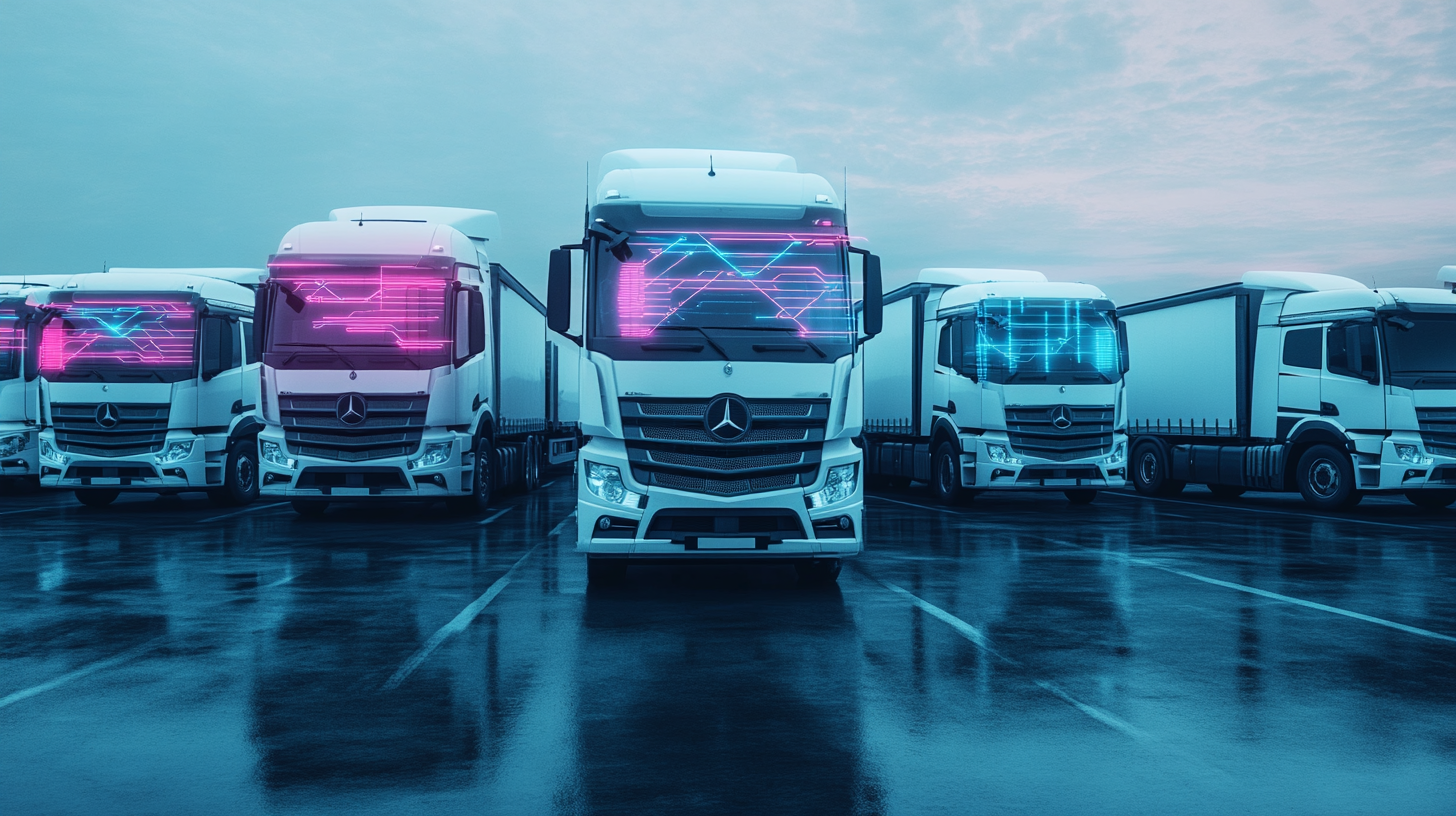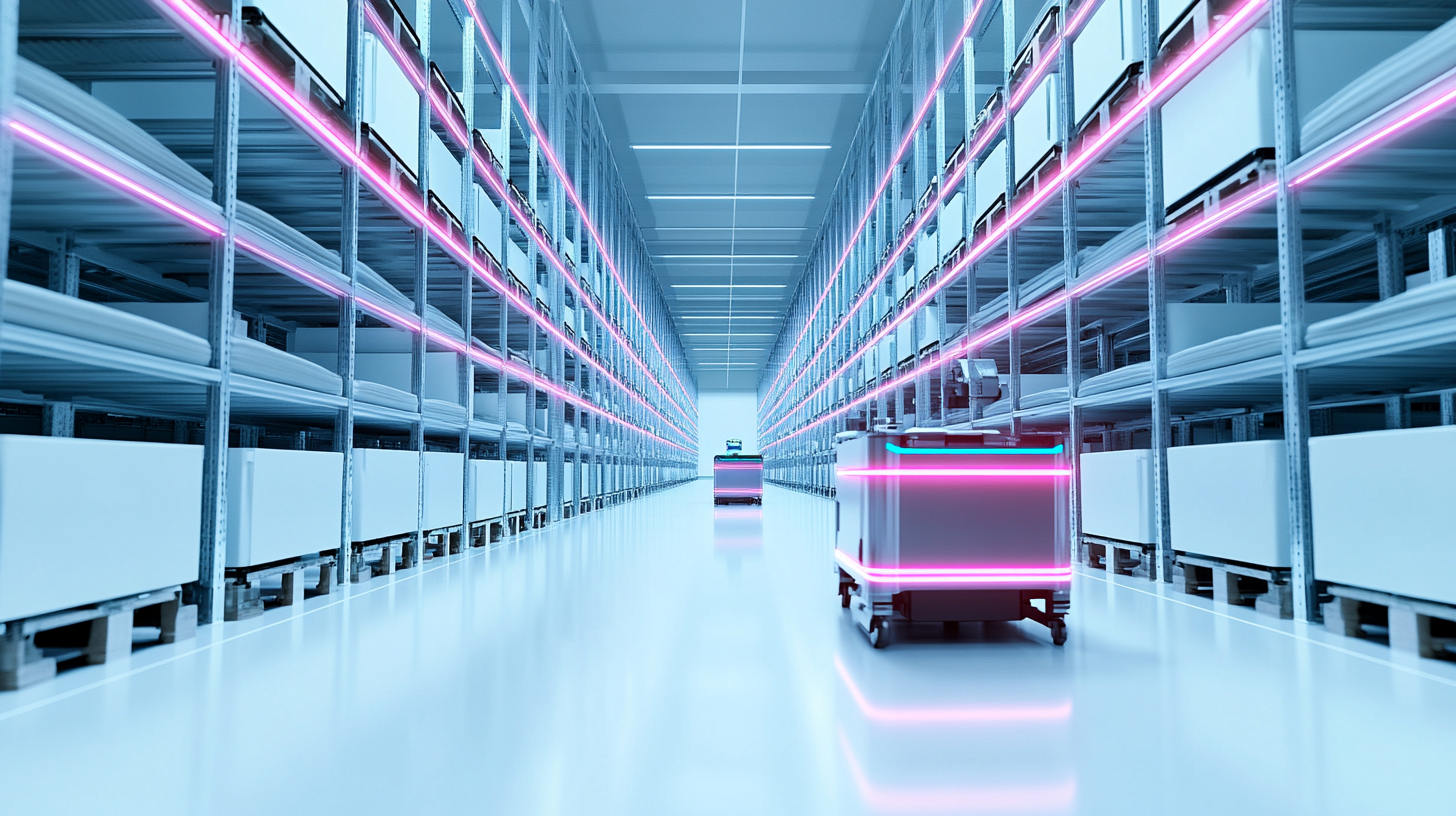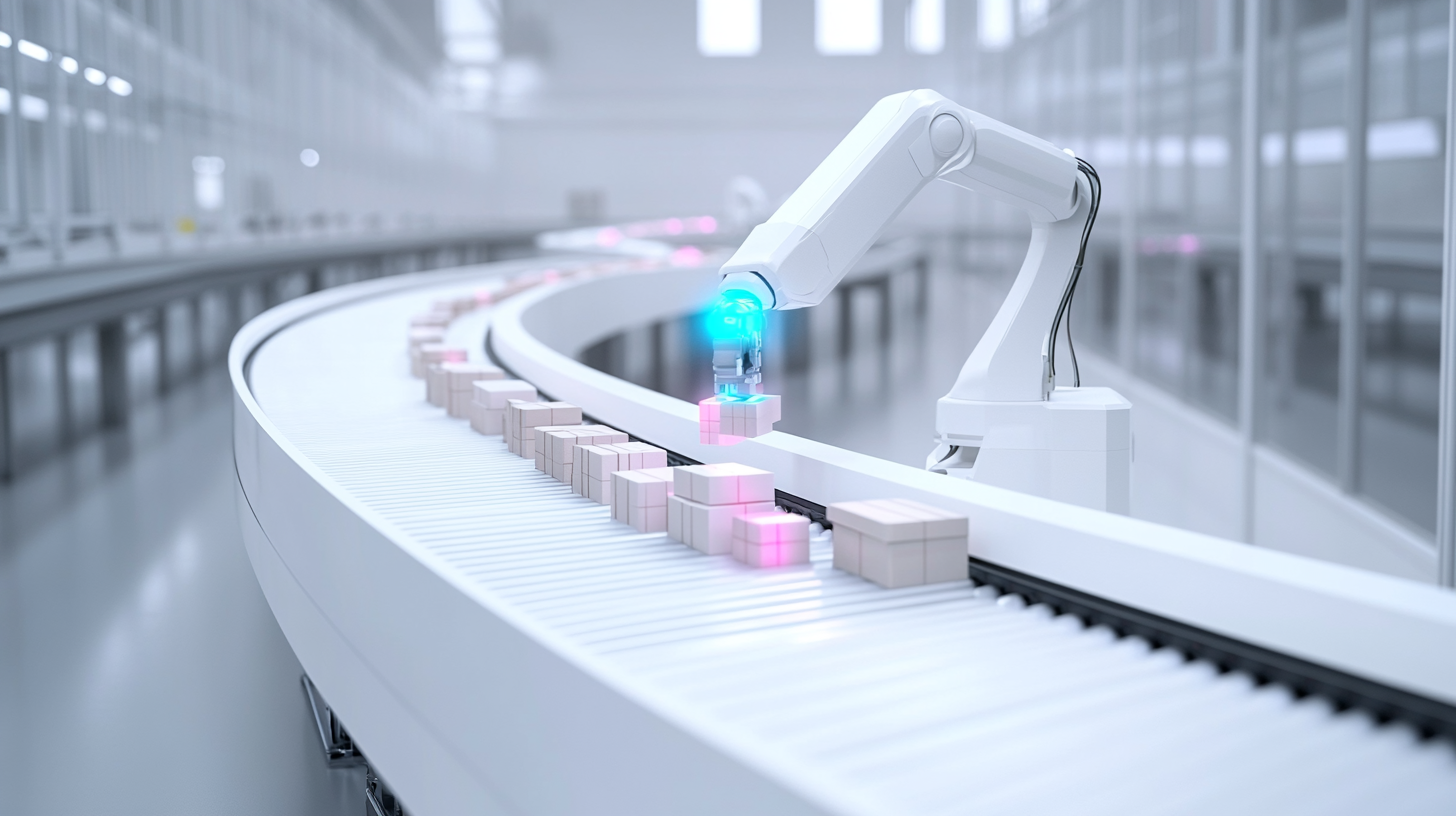Date of publication:
19 Dec. 24How is artificial intelligence used to optimize logistics
Logistics is not just about transporting goods. It’s a complex system that directly impacts every aspect of our lives: from how quickly you receive your orders to how efficiently companies manage the process. Picture this: your online order goes through hundreds of stages — from the warehouse to the transport vehicle, from inventory checks to route tracking. And yet, everything works flawlessly and with incredible speed. How? The answer is simple — artificial intelligence (AI).
AI is often associated with robots from futuristic movies, either trying to take over the world or save humanity. But in reality, it’s much simpler and far more practical. AI has long ceased to be a technology of the future. It has become an integral part of our present, and logistics is no exception.

Once, we relied on human factors: delayed deliveries, forgotten details — all of these were part of reality. But now, these problems are fading into the past. AI forecasts demand, selects optimal routes, and resolves issues before they even arise. Imagine no more delays, losses, or unnecessary expenses — just precision and efficiency.
Now, let’s explore how this “smart” tool transforms logistics. Demand forecasting, selecting the best routes, and automating warehouse operations — AI does all this better than humans. And the question is no longer whether to adopt these technologies, but when to do so to avoid being left behind. Ready to learn how AI is changing the game? Let’s go!
AI in logistics: how does the “brain” of the future work in supply chains
Your business is a complex mechanism where every stage of delivery can become a potential point of failure. From the warehouse to the customer — every step matters. Someone might forget the goods, someone might delay shipping, and someone might even neglect the delivery altogether. This is where AI-based management systems come into play. This intelligent assistant not only detects errors but also predicts them before they appear on the horizon.
Artificial intelligence is your personal manager, not just monitoring processes but identifying weak points and resolving them before they cause harm. Remember when logistics relied solely on intuition and human experience? Today, AI considers all factors: from weather conditions to traffic congestion. It’s no longer just technology — it’s a marvel!
Here’s where the magic happens: AI responds to changes and continuously learns. Every day, it identifies patterns we can’t perceive. If a certain route frequently becomes a “battlefield” due to traffic, AI takes note and suggests an alternative. Each time, it grows smarter, adapting to new data. And most importantly, it’s your strategic partner in the world of delivery!
Another significant advantage is the minimization of human error. We all know how stress can influence decision-making. But AI doesn’t experience fatigue or emotions. It always makes the best choice, even when circumstances change abruptly.
And this is just the beginning. If you’ve heard about autonomous trucks or intelligent transportation systems, you already know this is no science fiction. It’s a reality being implemented by the most advanced logistics companies. AI works hand-in-hand with such systems, ensuring flawless accuracy and efficiency in product delivery.
Want to stay ahead of the competition? Then it’s time to integrate AI into your logistics. It will help you survive in a highly competitive environment and emerge as a leader in the industry.

Smart warehouses: when AI takes the wheel
You’re the owner of a large delivery company. Your warehouse is pure chaos: boxes, cargo, pallets waiting for dispatch, and endless calculations on paper to keep everything in order. Enter your new assistant — artificial intelligence, capable of handling everything quickly and with incredible accuracy.
This isn’t science fiction but a reality already transforming warehouses. AI automatically calculates the optimal plan for each item, factoring in all possible variables. Why? Because even the best-organized warehouse can become overwhelmed. Every minute counts, and having a system that’s always one step ahead is crucial.
How it works
Let’s say you need to transport 200 different items. Each one is a puzzle: fragile, interdependent, or requiring special storage conditions. For a human, this is a logistical nightmare, but for AI? Just another task. Instead of struggling, the system effortlessly organizes everything, providing the best packaging and transportation options to ensure every item arrives intact.
Here’s where AI truly shines: it not only organizes items but also “senses” demand. With access to all data, the system can predict where and when these items will be most needed and automatically adjusts stock levels in real time. This means you don’t have to monitor inventory — AI does it all for you.
AI eliminates the old pain point of human error. Who hasn’t misplaced a box or overlooked low stock? For AI, this isn’t an issue — it “sees” everything and, most importantly, fixes errors without human intervention.
With such an assistant, your warehouse transforms from a place of chaos into an efficient machine where every item is in its place, ready for dispatch in no time. AI is your key to flawless logistics.

Advantages
Here’s another scenario: you’re a logistics manager with dozens of trucks delivering goods around the city. Traffic jams, accidents, road repairs — all these complicate your job. This is where AI comes in. It plans routes and instantly adapts them to real-time road conditions, accounting for unforeseen factors such as weather or accidents.
- Your drivers receive real-time updates on road conditions and can instantly switch to alternative routes when congestion arises. All this without additional calls or messages — AI handles it for you.
- Most impressively, AI can predict traffic jams. It’s like having your own “scout” at every intersection, alerting you to potential congestion. As a result, your drivers avoid queues and deliver goods quickly and without delays.
- Another perk: by optimizing routes, AI helps reduce fuel costs. Your trucks could use 10–15% less fuel. This is effortless savings, and when those savings add up, it becomes clear that AI not only improves logistics but also significantly boosts profitability.
If you think your drivers can find the best routes themselves, think again. They may know the city, but AI processes information much faster, predicts, and selects the optimal path.
Here’s how it works in practice: your trucks avoid traffic jams, your drivers don’t waste time on detours, and you don’t worry about delays in critical deliveries. AI is your ultimate ally for fast and flawless delivery.
How does artificial intelligence optimize inventory management
Let’s consider an example: you have a large warehouse storing tons of goods. Your task is to organize everything so that no item gets lost and every product is where it should be at the right time. This is where artificial intelligence steps in.
- Instead of manually counting inventory, AI works in real-time, analyzing stock levels and demand. It not only optimizes storage space but also eliminates errors. The technology can predict when an item will run out and automatically place orders with suppliers — all without your involvement. How convenient!
- Demand forecasting. AI uses historical data and seasonal trends to accurately predict which products will be in demand over the coming months. Forget about running out of stock while figuring out what to reorder. AI handles it all and minimizes the risk of shortages.
- And there’s more. Imagine your warehouse as a giant chessboard where every item is a piece that needs to be strategically placed for maximum efficiency. AI not only forecasts how much stock to keep but also arranges it so that the most popular products are easily accessible. It considers volume, weight, and even access time. It’s like having a team of warehouse managers who never tire and work around the clock!
With these capabilities, your warehouse becomes almost autonomous. You gain an edge not only in inventory accuracy but also in order processing speed. Your staff spends less time searching for items and more time focusing on critical tasks like handling customer inquiries and deliveries.
And let’s not forget about cost savings. If a product isn’t popular, it won’t take up unnecessary space in your warehouse. And if inventory levels become unstable, AI will handle the issue on its own without the need for supplier coordination.
So, if you want your warehouse to run like a well-oiled machine, it’s time to implement AI technology. Artificial intelligence is not just a trendy innovation; it’s a practical tool that reduces costs and boosts your business’s efficiency.

How artificial intelligence transforms transportation logistics into a super-efficient system
You’re the owner of a delivery company or manage a network of warehouses and vehicles. Every day you face countless challenges: how to reduce fuel costs, ensure trucks run smoothly, and make on-time deliveries. This is where artificial intelligence comes in — a concept we’ve all heard about but may not fully understand.
How can AI make your logistics super-efficient? Let’s break it down!
Hassle-free routing
Who hasn’t faced a situation where a truck gets stuck in traffic, a client doesn’t receive their order on time, and you’re caught between frustrated clients and drivers? AI takes these headaches off your plate. It analyzes weather, road conditions, and other factors to choose the best route. And this isn’t just theory! For example, the system might alert you: “It’s better to take the central route now; you’ll save 10 minutes and avoid traffic.” AI adapts routes in real time, minimizing delays and speeding up deliveries.
Predicting breakdowns: no more surprises
Don’t like surprises, especially when it comes to vehicle breakdowns? Imagine you’re planning deliveries, and suddenly one of your trucks is out of commission. Small delays can escalate into major problems. AI solves this by predicting breakdowns based on maintenance history, mileage, and vehicle condition. You’ll always know when repairs are needed, and if a truck is close to failing, the system will notify you in advance. Less stress, fewer expenses!
Intelligent fleet management
A large fleet is both an asset and a challenge. How do you maintain control? AI monitors the condition of every vehicle in real time, alerts you about maintenance needs, and even tracks fuel consumption. With this information, you can reduce costs and ensure uninterrupted operations. If you have multiple routes, the system allocates loads efficiently, maximizing each vehicle’s productivity.
Real-time delivery tracking: happy clients, peaceful you
Today’s clients expect reliable, on-time deliveries. AI allows you to monitor shipments at every stage in real time. You know exactly where your cargo is and receive alerts if delays occur. The best part? You can immediately inform clients of any changes. Everyone is happy: you, your customers, and your reputation.

No more human error: AI always delivers
We all know how human error can derail even the best plans. Forgetting to check road conditions or last-minute route changes can cause chaos. AI analyzes situations around the clock, adjusts decisions, and operates flawlessly. You no longer need to worry about employee mistakes — the system handles everything accurately and efficiently.
As a result, you gain a management advantage, peace of mind, and a significant reduction in logistical challenges.
Are you ready to hand over your logistics to AI
Companies looking to transform their logistics can leverage artificial intelligence as a powerful tool. Imagine having a supercomputer at your disposal that optimizes routes, predicts vehicle breakdowns, and minimizes human errors. This leads to improved customer service and significant time savings.
Now is the perfect time to integrate AI into your logistics if your company aims to grow, reduce costs, and automate processes. While you’re still hesitating, your competitors are already changing the game. It’s not just a bold move; it’s a smart decision that is critical for future success. Don’t waste time! Make your logistics so efficient that competitors turn green with envy, and your business becomes a true leader in the industry.



